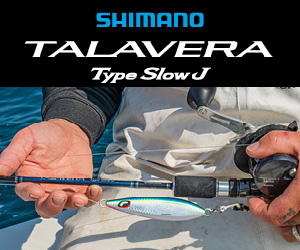We all knew there would be a big announcement but the cat was let out of the bag, or shall I say the pot was taken off part of the reef, when I recently attended the outdoor writer’s workshop in Assunpink. It was there that Commissioner Bob Martin had a very important announcement to make.
The Christie Administration has developed a compromise between recreational and commercial fishing interests regarding access to artificial reefs off the coast of
"The Christie Administration recognizes that recreational and commercial fishing are each vital to
%pullstart%The best part of the compromise is that a new reef, encompassing about a square mile of ocean floor, will be constructed in state waters in an area north of Barnegat Inlet for exclusive use by recreational anglers.%pullend%The DEP’s Division of Fish and Wildlife holds permits for 15 artificial reef sites-13 in federal waters and two in state waters. The reefs, encompassing a total of 25 square miles of ocean floor, are constructed from a variety of materials, such as rocks, concrete and steel, and even old ships and barges. These materials present surfaces for a wide diversity of marine organisms to grow, ultimately providing food and shelter for fish.
Under the DEP’s plan, commercial fishermen will be permitted to continue using portions of the Sandy Hook and Axel Carlson reefs in state waters. State waters extend from the shoreline to three miles offshore. Recreational fishermen will continue to have access to all portions of these reefs.
The best part of the compromise is that a new reef, encompassing about a square mile of ocean floor, will be constructed in state waters in an area north of Barnegat Inlet for exclusive use by recreational anglers. The Division of Fish and Wildlife will apply for a DEP Division of Land Use Regulation permit and will seek to amend a U.S. Army Corps of Engineers permit for this project.
This new reef will encompass roughly the same area as the portions of existing state waters reefs that commercial fishermen will be allowed to use. The new reef will take one to two years to design and build, and two to five years to become fully productive.
"I thank the Christie Administration, Commissioner Martin and legislators for understanding the importance of resolving fixed gear conflicts on reefs in state and federal waters, and for their commitment to take action,’ said Anthony Mauro, Chairman of the New Jersey Outdoor Alliance, an organization representing recreational fishing groups. "Commissioner Martin’s pledge is a giant step towards resolving gear conflicts, and addresses many concerns expressed by recreational anglers. Though the restoration of federal funding to the New Jersey Reef Program is requisite for a final resolution, we are very encouraged by the prospect of an equitable conclusion to what has long been an obstinate problem.’
The plan is expected to resolve federal concerns that commercial fishing is intruding on and hampering recreational fishing on artificial reefs in state waters, which are funded by excise taxes on recreational fishing gear and motor boat fuel. Costs to obtain, clean and deploy suitable material also is supported by private donations.
As the plan is implemented, the DEP will petition the U.S. Fish and Wildlife Service to restore nearly $250,000 in annual funding for artificial reef research, improvements and maintenance that has been withheld as a result of this issue.
Funding restored by the U.S. Fish and Wildlife Service would be used to pay for a portion of this project. Donations from both the commercial and recreational fishing communities could also help pay for construction. The DEP, in consultation with stakeholders and the Army Corps of Engineers, will finalize a site for the new reef, which is expected to cost about $200,000 to design and build.
Under the plan, the DEP will petition the federal Mid-Atlantic Fishery Management Council for Special Management Zone designation which would allow the DEP to prohibit commercial gear on all 13 existing artificial reefs in federal waters. The Mid-Atlantic Fishery Management Council has sole authority over reefs in federal waters.
Artificial reefs are extremely popular with anglers and divers, contributing to the state’s economy through the creation of tourism opportunities and jobs.
Capt Peter Grimbalis of Reef Rescue and the New Jersey Outdoor Alliance called it “A great compromise at no net loss.” He added that “Asking for Special Management Zones and 100 percent enforcement will be tremendously important.” The start of reef building again in the
Recreational saltwater fishing brings in more than $640 million in retail sales and is directly responsible for nearly 10,000 jobs and more than $242 million in tax revenues, including $165 million in NJ state and local taxes. For more information, visit: NJ Division of Fish and Wildlife Artifical Reef Program.

